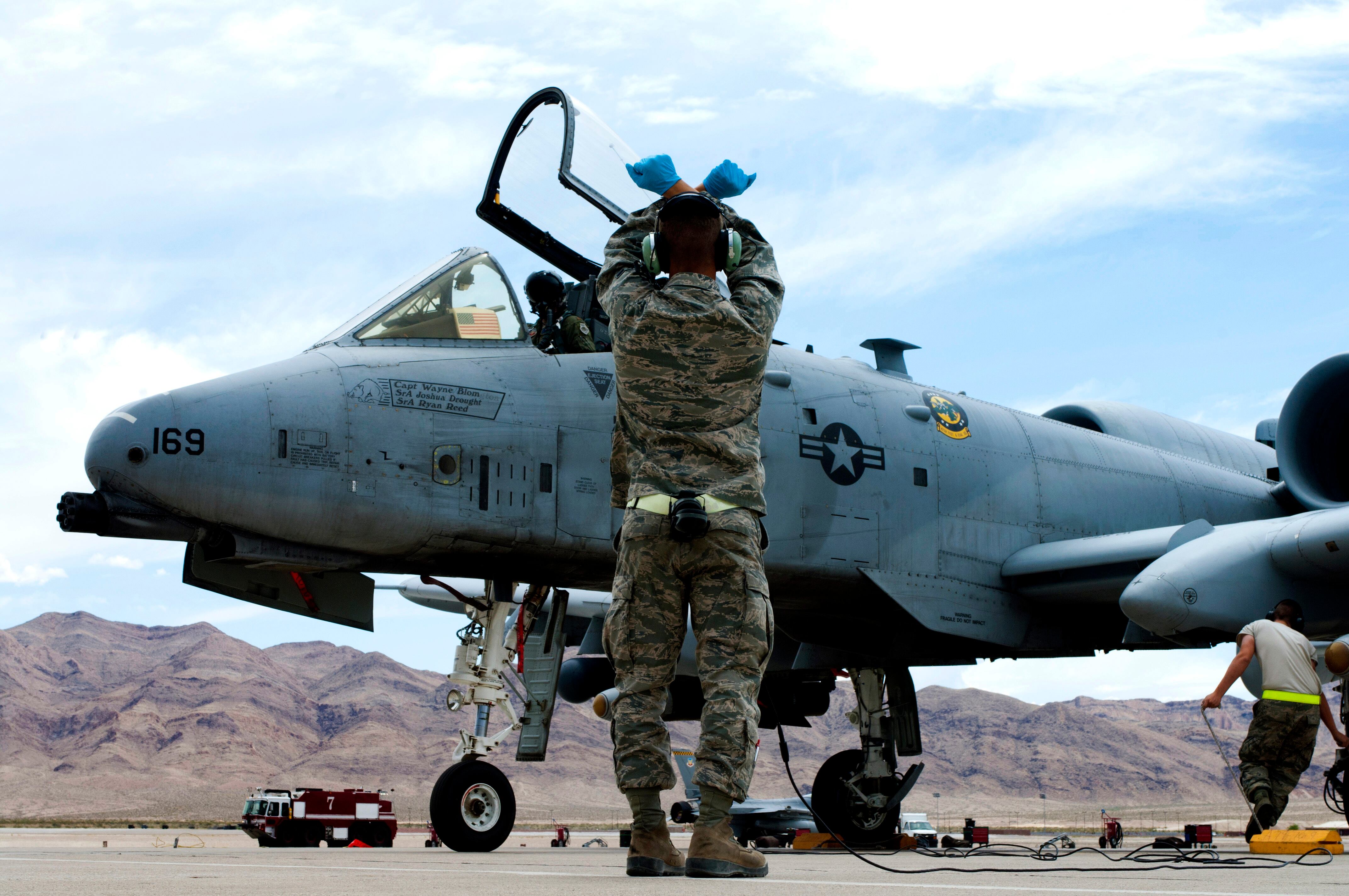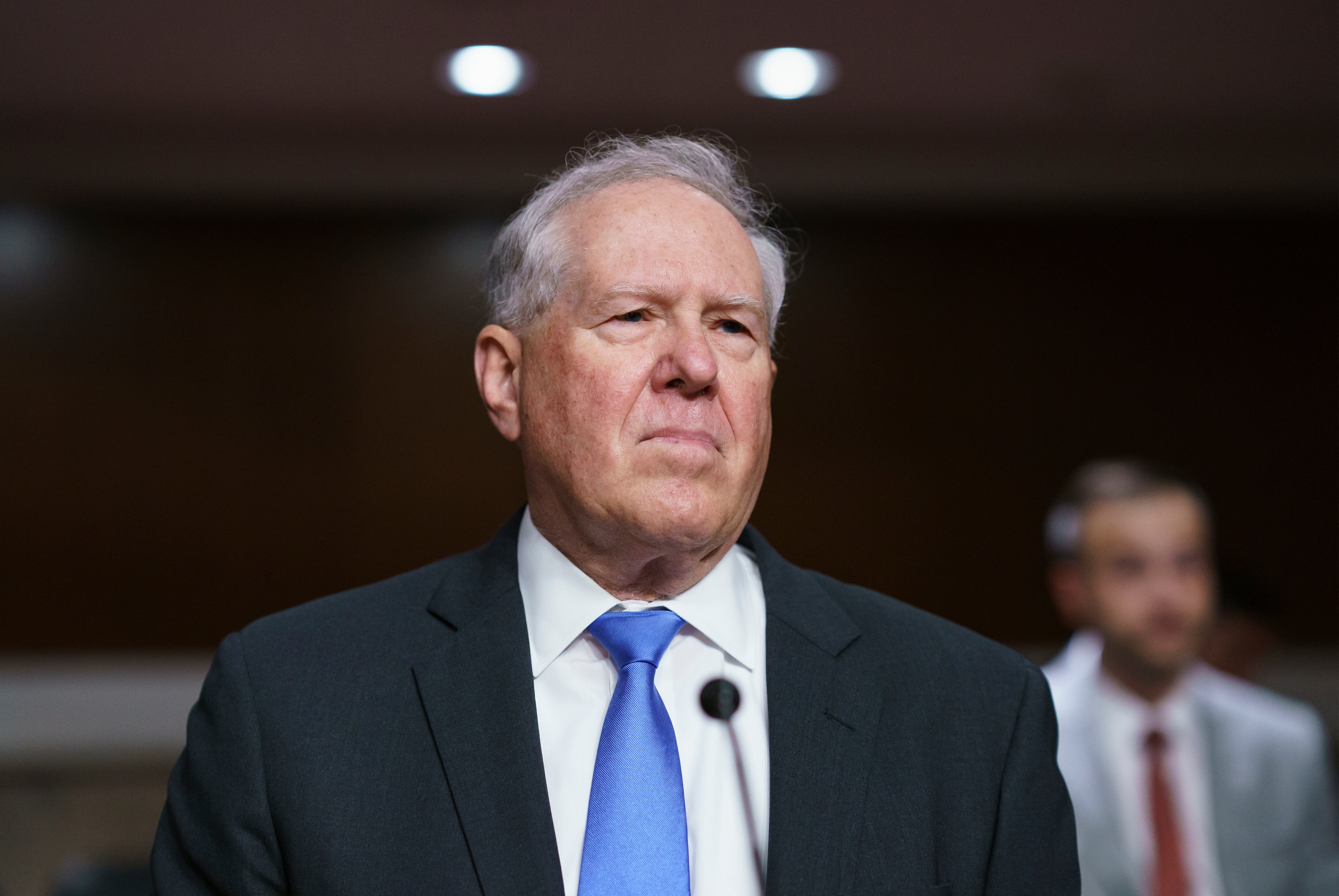WASHINGTON — The Senate confirmed former Pentagon acquisition chief Frank Kendall to be the 26th Air Force secretary in a voice vote Monday, after defense officials assuaged the concerns of multiple lawmakers who were blocking the nominee’s path forward.
Kendall will take over as the top civilian overseeing the Air Force and Space Force, potentially as soon as Tuesday. The Army veteran who has served as a former Pentagon official, defense industry executive and human rights attorney will partner closely with Gina Ortiz Jones, a former airman and military adviser who was sworn in as Air Force undersecretary on Monday.
Though the road to confirmation is typically smooth for Pentagon nominees, multiple senators in this case looked to extract promises from Kendall and the Air Force along the way.
RELATED

Michigan Democratic Sens. Gary Peters and Debbie Stabenow on July 22 lifted their procedural holds on Kendall and nine more of President Joe Biden’s national security nominees after about a month in limbo.
The move ended a successful gambit in which Peters used the holds as leverage against the Biden administration to secure the future of Michigan’s Selfridge Air National Guard Base as a military aviation hub in the Midwest.
“Senator Peters secured significant commitments from the Air Force and the Department of Defense to support and expand Michigan’s military installations and missions,” a Peters spokesperson told Defense News on Monday. “While he is releasing holds on nominees, he will continue pressing for additional information regarding the Air Force’s recent F-35 international training center decision and will continue advocating for Michigan’s military and defense footprint.”
Peters, a Senate Armed Services Committee member, and Stabenow, the Senate’s No. 4 Democrat, met with Air Force officials July 13 to discuss the service’s decision to house an international training center for the F-35 Joint Strike Fighter at Arkansas’s Ebbing Air National Guard Base instead of Selfridge.
Eastern Michigan was “clearly the best place” for that work, Peters argued. But the conversation did not immediately end the standoff.
Then in a July 16 letter obtained by Defense News, acting Air Force Secretary John Roth assured Peters that Selfridge will remain a hub for the A-10 for at least the next 10 years, as well as future tanker aircraft.
RELATED

“Selfridge’s 107th Fighter Squadron will retain all of its existing A-10s for the next decade while also modernizing those aircraft,” Roth wrote, adding: “The Selfridge KC-135s will remain an indispensable source of tanker capacity for our national security. The 171st Air Refueling Squadron will be part of the 300 KC-135s the Air Force plans to keep.”
Those tankers will eventually be replaced with the new KC-46 Pegasus or a more advanced tanker in the future.
“These plans ensure Selfridge will play a critical and ongoing role for our national security, building on the base’s storied past that dates back to World War I,” Roth wrote.
It took several more days for the Michigan duo to retract their objections to Kendall. The lawmakers relented last Thursday, and the Senate confirmed seven national security nominees the same day.
Sens. Elizabeth Warren, D-Mass., and Mike Lee, R-Utah, also briefly slowed Kendall’s confirmation process, but gave way earlier in the month.
Peters is touting the outcome as a victory for Michigan, where he narrowly won a second six-year term in November against Republican challenger John James in the once reliably blue state. The race focused in part on how Peters’ track record in the Senate and military bona fides as a former Navy reservist stacked up against that of James, who flew Army helicopters in the Iraq War.
RELATED

The fight for Selfridge’s A-10 fleet is one part of a longstanding battle between the Air Force and Congress over what to do with the venerable Warthogs.
Last week, the Senate Armed Services Committee’s fiscal 2022 defense policy bill rejected the U.S. Air Force’s plans to mothball 42 A-10s — only the latest such move from lawmakers. The service’s budget proposed cutting back to 218 A-10s by the end of 2023 and extending the life of the rest of the aging inventory with new wings.
While Air Force officials say the cost of sustaining the Warthog will eat into investments for technologies to counter China, a press release from Peters’s office said he co-sponsored an amendment to the National Defense Authorization Act aimed at banning A-10 divestments because the aircraft “still plays an important role in counterterrorism and combat search and rescue missions.”
The press release also touted the bill’s inclusion of some $128 million for Michigan military facilities, including $28 million for a new A-10 hangar and maintenance facility at Selfridge. The bill isn’t final and would have to be first reconciled with a forthcoming House version and signed into law.
“This investment will help keep A-10s flying at Selfridge for decades to come by ensuring that we’ve got the state-of-the-art infrastructure necessary to fly, maintain and train on A-10s,” the release said.
Valerie Insinna of Defense News contributed to this report.
Joe Gould was the senior Pentagon reporter for Defense News, covering the intersection of national security policy, politics and the defense industry. He had previously served as Congress reporter.
Rachel Cohen is the editor of Air Force Times. She joined the publication as its senior reporter in March 2021. Her work has appeared in the Washington Post, the Frederick News-Post (Md.), Air and Space Forces Magazine, Inside Defense, Inside Health Policy and elsewhere.





